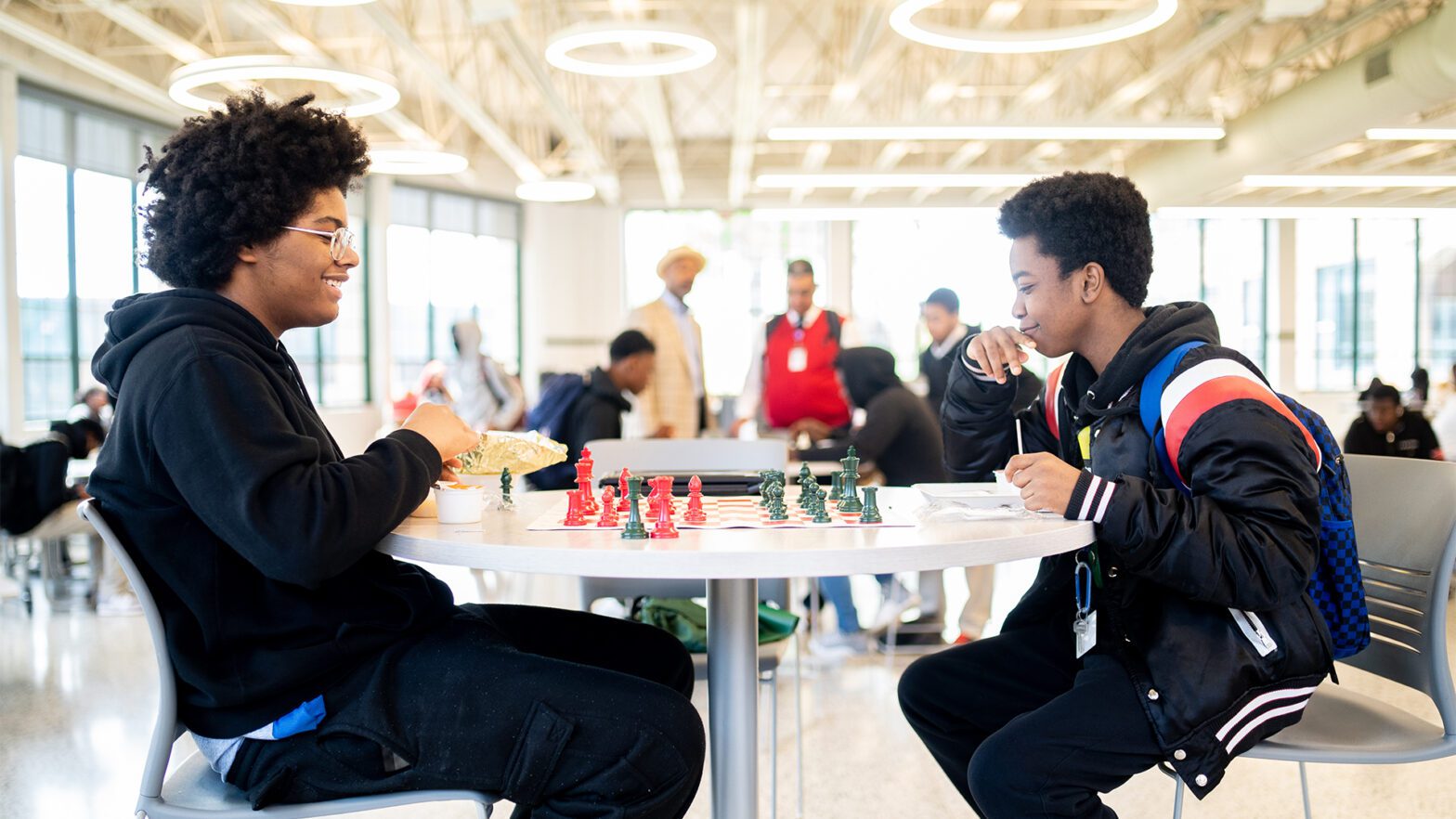As the mid-day school bell sounded throughout the hallways of Normandy High School, students found themselves faced with a choice: either continue to their next class or join the waiting of the lunch line. However, there was an alternative that called to a growing crowd—a hidden gem nestled in the back of the cafeteria—the chess tables.
Phillip Barry, affectionately known as Mr. Barry or Hat Man, began his role as a Family Engagement Liaison at Normandy High School at the start of the 2022-2023 academic year in August. Since then, he has dedicated himself to providing constructive and positive guidance, direction, and outlets for the approximately 650 students who navigated the halls of the high school.
During the initial months of his tenure, Mr. Barry recognized that introducing a new avenue for student engagement during lunch periods would serve as a potential catalyst for change. Little did he know that this catalyst would manifest in the form of chess boards.
While most students at the Normandy Schools Collaborative had been exposed to chess as an enrichment activity during their elementary school years, the intricacies and rules of the game had faded from memory for many. Nonetheless, their interest was reignited when the opportunity to play resurfaced.
What began as a modest gathering of three to five students gradually grew over the course of the school year, surpassing a total of 30 student participants. Initially, Mr. Barry simply opened up the tables for free play or offered instruction to those who had forgotten how to play the game. However, as time progressed, he introduced a variety of different factors to the chess experience.
Among these was the establishment of a ranking board, showcasing the prowess and skill of aspiring chess enthusiasts. Moreover, Mr. Barry began organizing tournaments, fostering an atmosphere of friendly competition and fulfillment. Through such endeavors, he nurtured the hope of further cultivating the interest of the students and eventually assembling a chess team capable of representing the school at competitions.
“I really want to give the students a way to have pride in representing themselves and competing on behalf of the school,” Mr. Barry said.
The transformative power of chess within the school community did not go unnoticed. As more and more students found mental stimulation in the game, the atmosphere in the cafeteria underwent a noticeable shift. What was once a space full of tension and pent-up energy had transformed into a jovial space brimming with laughter, strategy, and genuine enjoyment. It evolved from a place that they had to be to a place that they wanted to be.
Beyond the initial benefits of encouraging intellectual stimulation and community, chess served as a catalyst for personal growth among the participating students. The game demanded patience, critical thinking, foresight, and adaptability—qualities that flowed over into various aspects of their lives. Mr. Barry witnessed how the students’ dedication to continually better their skills at chess spilled over into their academic pursuits, fostering a greater appreciation for discipline and critical thinking.
As the school bell rings each day, inviting students to embark on new intellectual journeys, the chess tables in the back of the cafeteria stand as a testament to the profound impact that a dedicated individual can have on the lives of many.
